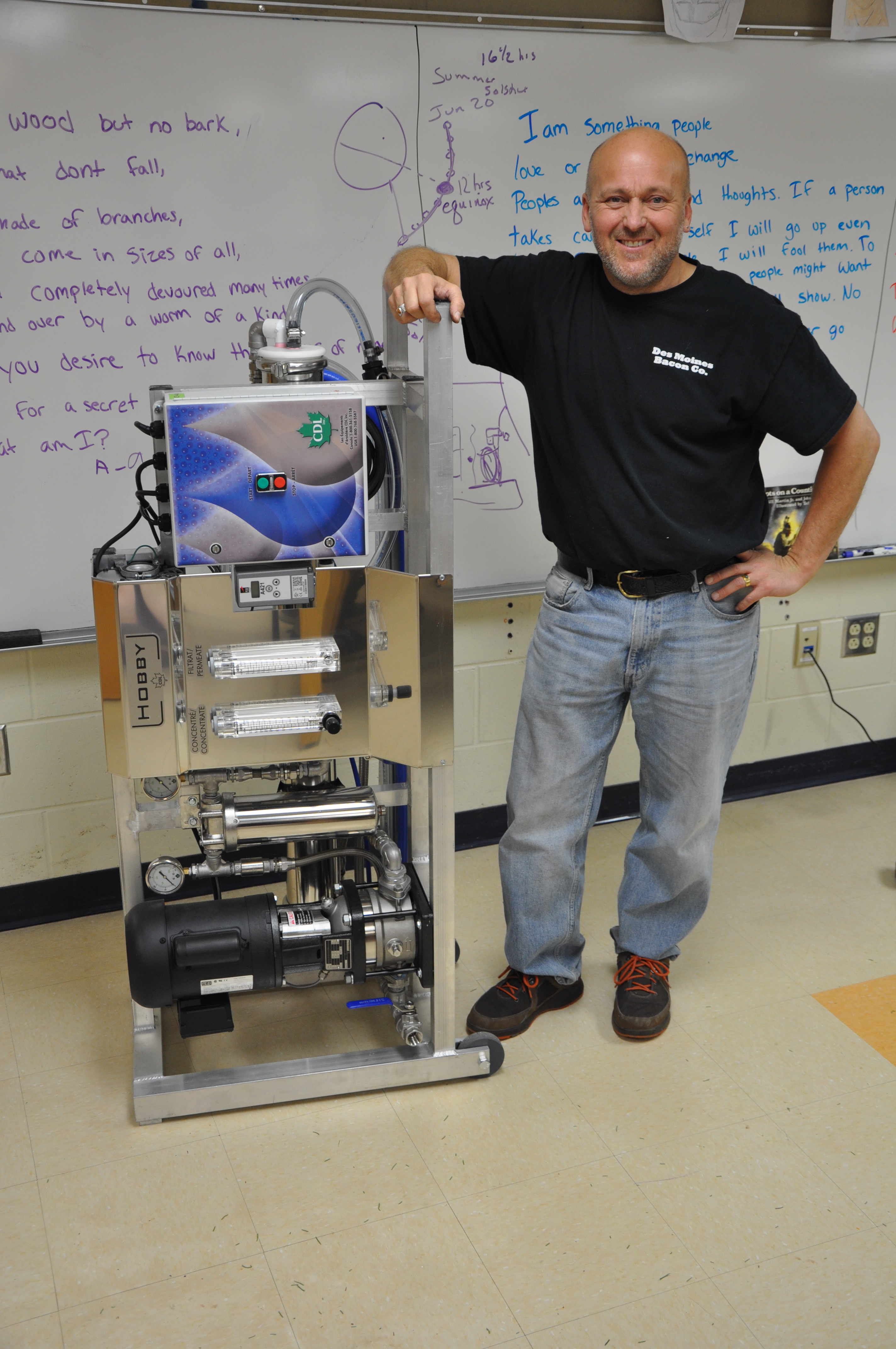|
You are viewing ARCHIVED content published online before January 20, 2025.
Please note that this content is NOT UPDATED, and links may not work. For current information,
visit https://www.nps.gov/aboutus/news/index.htm.

Bayfield High School
Contact: Neil Howk, 715-779-3398, x1302 Bayfield, WI - A grant from the National Park Foundation helped the Bayfield School recently purchase a reverse osmosis machine to enhance student efforts to collect, process, and study maple sap. Apostle Islands National Lakeshore earned the first of several Park Stewards grants in 2011to launch the Apostle Islands Experiential Learning Partnership (AIELP), an innovative project to develop new curricula and experiential learning opportunities for students in different grade levels at the Bayfield School. Since 2011, the National Park Foundation provided more than $30,000 in Park Stewards grants to fund the various projects inspired by this partnership.The person facilitating the AIELP is Richard Erickson, Bayfield High School’s science and alternative education teacher. Mr. Erickson developed Apostle Islands’ related curricula for his high school chemistry and physics classes while working with other teachers to imbed elements of the park’s history and ecology into their classes as well. He developed service learning related opportunities for individuals and groups of students at the school to get personal experience in the national lakeshore with park related issues. He encouraged several students to do independent, park-related research projects and helped those students serve summer internships at the national lakeshore. According to Mr. Erickson, “By engaging students in real-world experiences, projects developed with Park Stewards funding have greatly enhanced our place-based approach to teaching science at Bayfield. These projects allow students to practice science rather than idly learn science.” Collecting, processing, and studying maple sap is one of the long-term projects in which Rick Erickson and his students have been involved. Some of the trees regularly tapped by the students include the maple trees around the Apostle Islands National Lakeshore headquarters in Bayfield and some near the visitor center at Little Sand Bay. When the project started, Mr. Erickson had students use his personal equipment to process the sap. As the project expanded, Mr. Erickson obtained funding to buy new equipment including a stainless steel evaporator. Though this increased the efficiency of converting the sap into syrup, it still takes a long time to complete the process. It takes about 43 gallons of sap with a 2% sugar content to produce one gallon of syrup (66% sugar). This means 42 gallons of water must be removed. Reverse osmosis is a sap pre-processing system that takes raw sap and forces it under pressure through a semi-permeable membrane. Only water can pass through the membrane thereby increasing the sugar content of the remaining sap. The reverse osmosis machine purchased by the Bayfield School can process about 100 gallons of sap per hour and should remove about 50% of the water from the sap. This will cut in half the amount of time the sap must be boiled in the evaporator. Since 2011, Park Stewards funds have covered the costs of numerous trips to the Apostle Islands for area students, a “traveling trunk” of props used with Mr. Erickson’s “physics of lighthouses” curriculum, lumber for a student constructed boardwalk on the Lakeshore trail at Meyers Beach, teacher workshops, and equipment for various student projects like the maple syrup project. Though funding for the Park Stewards program ended in 2015, the program’s impacts at the Bayfield School will continue far into the future. |
Last updated: December 19, 2016
